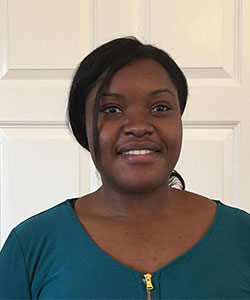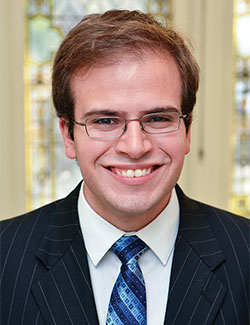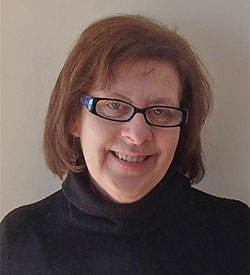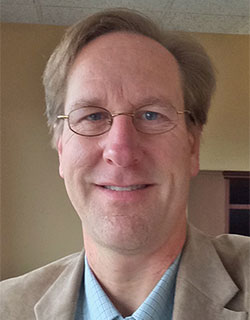Six years ago I joined a task force in the Episcopal church in Connecticut charged with overhauling the formation process for Episcopal clergy in our state. The motivation for the overhaul was obvious: Between 2005 and 2010, the number of full-time clergy positions had shrunk by a third in Connecticut, and the trend looked likely to continue. This translated into a need for priests willing and able to take on assignments other than full-time. It also created a need to provide flexible ways of preparing people for bivocational (or what we call “hybrid”) callings. We couldn’t expect future clergy to drop everything and attend seminary for three years if their ministry paths would forever stretch in two directions.
We needed to overhaul the formation process, but that doesn’t mean we were looking to eclipse the role of the seminary. We acknowledged the vital role that schools of theology have played, and will continue to play, in clergy pastoral formation.
The option of attending seminary would remain intact, but we knew that full-time theological studies could no longer be the only track available to people called to ordained ministry, as it was too often financially and geographically out of reach. We needed a variety of models to meet a variety of needs, because our 165 parishes in Connecticut are not all the same. Some are tiny and can only afford Sunday-only priests. Some are large, with multiple staff members, and need leaders with executive management skills. Most fall somewhere in between. The M.Div. degree is still the gold standard across the church for full-time clergy, yet we knew we needed multiple models of formation to accommodate all kinds of people, including those whose ministries might look very different from what was typical a decade or two ago.
Our year-long deliberations resulted in a design that gives the diocese, not the seminary, the primary responsibility for formation. It increases local involvement and oversight of everyone preparing for ordained ministry, even students pursuing traditional degrees at residential schools. The seminary continues as a primary resource for academic formation, while working closely with the diocese.
The new process is flexible, operating under the assumption that experience counts. Formation is seen as something ongoing, taking place in the classroom, online, and in the field. Clergy are given the opportunity to add new skills throughout their careers to serve an ever-changing church and world.
In the company of others
Collaboration and collegiality are central to our new process. We believe formation and preparation for ordained ministry are best done in community. People invited to begin the journey to ordination become part of a colleague group that I facilitate as dean of formation. We meet monthly in a virtual online setting, enabling students attending out-of-state seminaries to participate. Everyone commits to being part of the group for three years, regardless of how long their ordination timeline is.
In their first year together, group members share spiritual autobiographies and develop individual formation plans that include their visions for future ministry. They explain how they will become competent in the required areas of scripture, church history, theology, ethics, worship, and the theory and practice of ministry in contemporary times. The documents that emerge from this first year describe the life experiences they bring to each area and what courses will help them achieve competence.
For some folks, developing the formation plan is a retrospective exercise; they look back and review their experience as well as the formal studies they’ve completed. For folks who are new and haven't attended seminary — or who have not done significant course work — this exercise helps them identify gaps in experience and education that they will need to fill to meet requirements for ordination.
Throughout the formation group’s three years together, plans are assessed and refined with input from colleagues and oversight from diocesan leaders. The second and third years offer materials that supplement what is covered in the classroom as well as information pertinent to the practice of ministry in our state. We also do book studies together and continue to relate to each other in deeper, more personal ways.
We are in a place of significant privilege in terms of our geography, because within Connecticut — or within an hour’s drive from the state line — we have access to many institutions for theological education. This means that those in the ordination process can choose from a variety of courses and institutions, offering both full-time and part-time study, without changing their place of residence. This gift of location has made it easier to create a flexible process. We expect that as more institutions develop distance learning and online programs, geographic proximity will likely become less significant.
Certain standards remain in place. All candidates for ordination must sit for the denomination’s General Ordination Exam, do an internship, and complete a unit of clinical pastoral education. For persons who anticipate bivocational careers, we allow education that includes individual tutoring as well as seminary studies, either in person or online, or in combination. Flexibility is the key.
We strive for a portfolio approach to competency, so many factors come into play. Depending on their experiences and the speed with which they engage in the courses and programs necessary to develop competency, a candidate’s process from nomination to ordination might require as few as two years or as many as ten.
Collegiality as a guiding principle
Collaboration is not just something we expect of those in the ordination process; it’s something the Episcopal church in Connecticut models and practices daily. The bishops, the Commission on Ministry, various committees, and the diocesan staff work collaboratively to oversee the formation of priests and deacons. We encourage members of colleague groups to stay in touch after ordination and throughout their ministries.
To facilitate this we’re looking at new ways that parishes might collaborate to offer newly ordained priests creative possibilities for further formation and exploration in their early years of ministry. We’re experimenting with a program in which multiple parishes — and possibly community organizations — collaborate to support a new priest in building a ministry that fosters partnerships and helps parishes connect with the needs of the neighborhoods.
Time will tell if our new efforts in formation are successful in meeting the needs of an evolving church in an evolving world. And we’re optimistic. It’s easy to get caught up in the challenges we face as an institution. It’s easy to focus on what’s missing and how things used to be. Yet as we finished the final session of our first class of colleagues, I was filled with hope. These future pastors are a remarkable group of Christians — passionate about following Jesus into the neighborhood. They’re excited about the opportunity to gather, inspire, and empower communities to live out their faith in daily life.
Currently in formation in Connecticut
 |
|
Shancia Jarrett was confirmed as an Episcopalian in 2015 while she was a participant in Saint Hilda's House, a community of young adults who live in community at Christ Church in New Haven and serve the city's most vulnerable residents. She is now a first-year master of divinity student at Berkeley Divinity School at Yale. She is passionate about housing and disability ministries.
|
 |
|
Armando Ghinaglia was born in Venezuela and raised in Texas before he moved to Connecticut to attend Yale, where he graduated with a B.A. in political science in 2014. While an undergraduate, he began attending the Episcopal Church at Yale, which is now sponsoring him for ordination. A second-year student at Berkeley Divinity School at Yale, he hopes to work with Spanish-speaking congregation after ordination.
|
 |
|
Ann Perrott graduated from Episcopal Divinity School in 2013 and now serves as executive director of the Southeast Connecticut RE-Entry Mission. A specialist in prison ministry, she has facilitated healing courses in four different prisons. She has lived most of her life in Massachusetts and now lives in Niantic.
|
 |
|
Thom Peters is a history and philosophy teacher at the Hopkins School in New Haven - a school founded with the mission of building up young people "for the public service of the country in future times." He and his wife have raised two children at St. Peter's Episcopal Church in Cheshire. Peters serves as a ministry intern at St. Paul's Episcopal Church in Bantam, hoping ultimately to create a hybrid ministry as a teacher, preacher, and pastor.
|